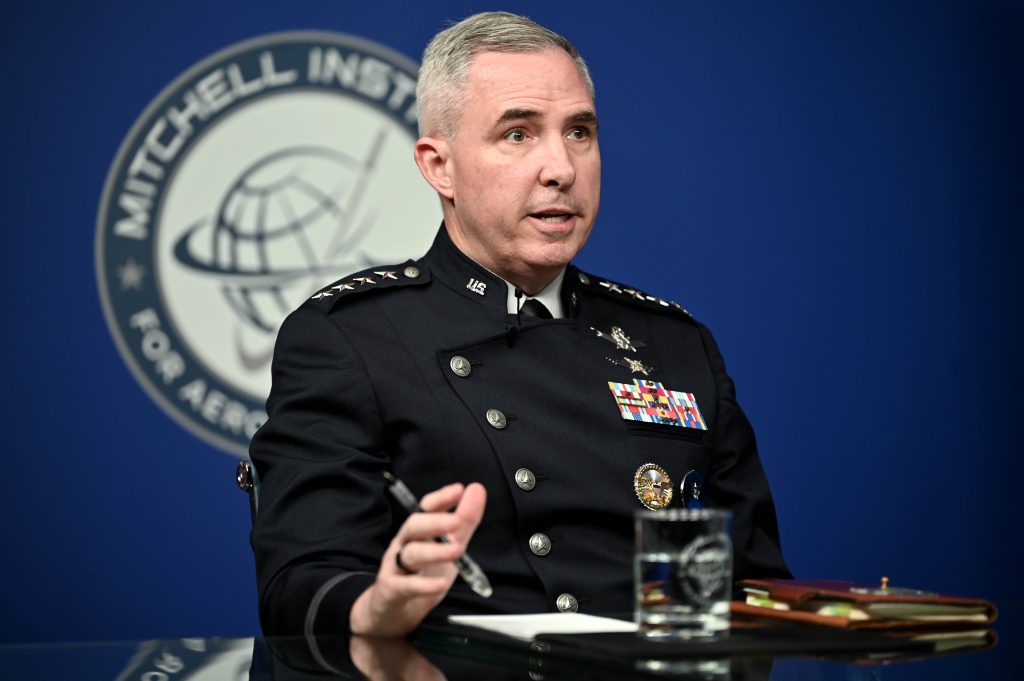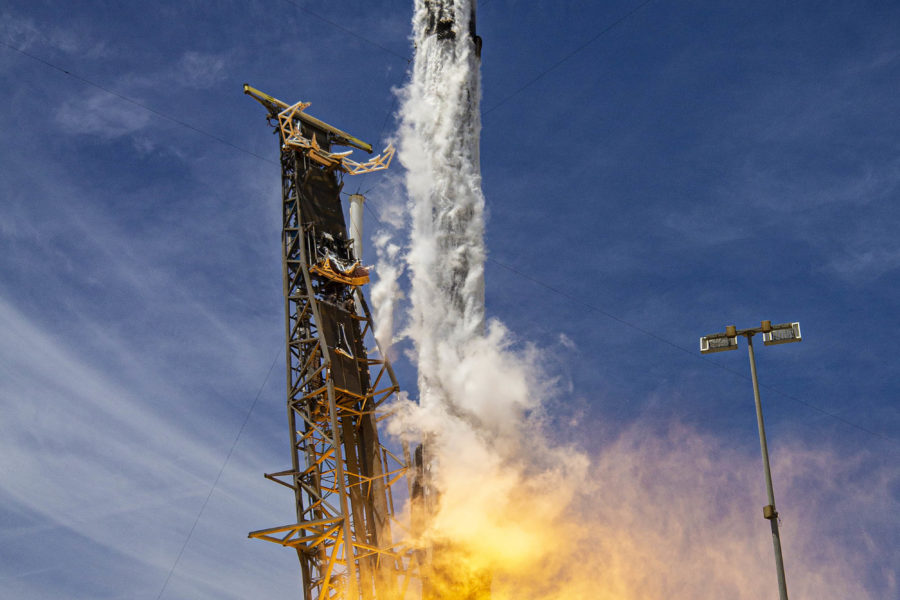The head of U.S. Space Command said he was confident launch provider SpaceX will soon be back to regular operations after a rare mishap involving one of its Falcon 9 rockets, but he was also grateful that the U.S. has more than one family of launch rockets to choose from at a time when the Space Force is trying to fortify its presence in Earth orbit.
The mishap occurred July 11 when the engine of the upper stage of a Falcon 9 rocket malfunctioned during a commercial launch from Vandenberg Space Force Base, Calif.
The first stage of the launch went as expected, but reports indicate the upper stage engine had a buildup of ice. A livestream of the launch ended, but SpaceX CEO Elon Musk later said the engine exploded. It is the first Falcon 9 failure since 2016, prompting all Falcon 9s to be grounded.
“It just so happened that last Friday morning [July 12] I was in Seattle, Wash., visiting SpaceX Starlink,” Space Force Gen. Stephen N. Whiting said July 17 at the Aspen Security Forum. “We showed up, and some of their senior leaders were there, and they were very transparent, giving us insight into what had happened.”
SpaceX has reportedly asked the Federal Aviation Administration to allow Falcon 9 to return to flight while an investigation into the mishap proceeds. The rocket has become a key part of U.S. access to space, accounting for the vast majority of American launches in 2023.
For the Pentagon in particular, Falcon 9 has already conducted two National Security Space Launches in 2024—carrying missile warning/missile tracking satellites for the Missile Defense Agency and Space Development Agency in February, and a Space Force weather satellite in April. That’s in addition to a Space Systems Command smallsat as part of a “rideshare” in March.
“I personally have full confidence in SpaceX working with the FAA, working with NASA, working with the Space Force, to figure out what happened and continue launching,” Whiting said. “They’ve launched the Falcon 9 hundreds of times. I’m sure they’ll figure this out quickly.”
Any delays could have a ripple effect, especially as SDA plans multiple launches in succession this fall to fill out its Proliferated Warfighter Space Architecture in low-Earth orbit. SpaceX has been awarded the vast majority of those missions.
Yet Whiting projected confidence that there will be no delays.
“It also speaks to the wisdom of our national space transportation policy that says we as a nation need two independent families of launch rockets to get to all of our orbital regimes,” Whiting said. “And certainly SpaceX is providing one of those. And we have another through United Launch Alliance. And that’s a great thing for the nation, that we can continue to launch even while these investigations go on.”

ULA is in the process of certifying its new rocket, Vulcan Centaur, for National Security Space Launch missions, needing one more successful launch. But even beyond the two major providers in ULA and SpaceX, the Pentagon has made a concerted effort in recent months to bolster competition in the launch industry—and ensure “assured” access to space.
In June, the Space Force announced it was adding newcomer Blue Origin to the NSSL program as part of a “lane” intended for less critical missions with a higher tolerance for risk. Still other companies will be able to join the program through annual “on-ramps.”
Earlier this month, the service authorized Blue Origin and Stoke Space to compete for launches under its Orbital Services Program-4, for fast-turnaround launches and small payloads—a companion program to NSSL.


